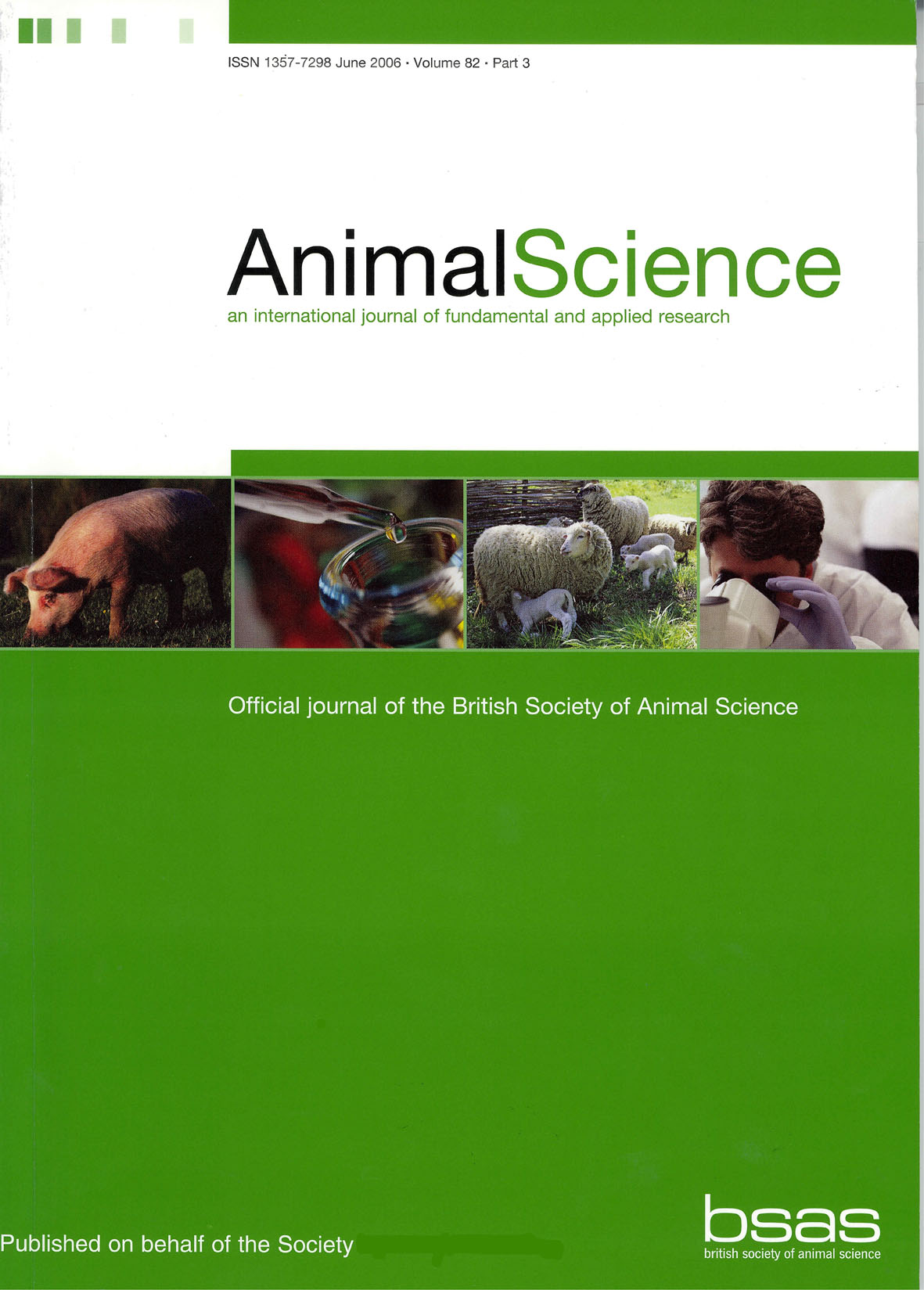Article contents
Effect of abomasally infused casein on post-ruminal digestibility of total non-structural carbohydrates and milk yield and composition in dairy cows
Published online by Cambridge University Press: 18 August 2016
Abstract
A study was conducted to evaluate the effect of abomasal infusion of casein on post-ruminal digestibility of starch and on milk yield and composition. Six multiparous Israeli Holstein cows in mid lactation, fitted with ruminal and abomasal cannulas, were used in a 3 ✕ 3 Latin-square experiment. Each cow received 1600 g maize starch infused into the abomasum. Treatments were: abomasal infusion of sodium caseinate at 0, 350, or 700 g casein daily. Chromium mordant neutral-detergent fibre (NDF) was used as a digesta marker. Casein infusion was associated with increases in post-ruminal and total-tract digestibility of non-structural carbohydrates and protein. Concentrations of rumen ammonia and of plasma insulin, glucose and urea were higher in casein-infused cows. Concentrations of milk protein and lactose and milk protein yield increased with casein infusion. Results indicate that increased protein flow to the abomasum can improve the yield of milk constituents in dairy cows. Digestibility and yield responses to infusion of 350 g casein per day were similar to those at 700 g/day. There was a tendency toward reduced milk protein efficiency in casein-infused cows. It is suggested that part of the production response can be related to a direct effect of protein supply and the rest can be explained by the indirect effect of improved carbohydrate availability in the small intestine.
Keywords
- Type
- Ruminant nutrition, behaviour and production
- Information
- Copyright
- Copyright © British Society of Animal Science 2002
References
- 12
- Cited by


